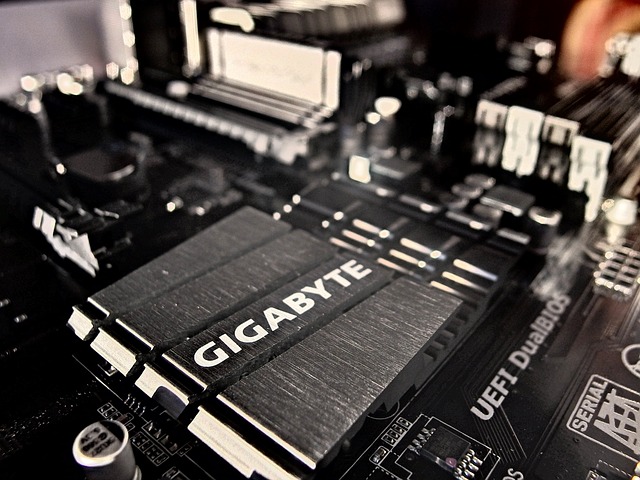Liya Linux is a security-centric distribution designed for those prioritizing data protection. It features an up-to-date open-source kernel with advanced security enhancements and regular updates to patch vulnerabilities quickly. The distro includes hardened versions of OpenSSH and OpenSSL, optimized for both security and performance. It employs AppArmor for tight control over program permissions, effectively preventing unauthorized actions or malicious exploits. For users with high-security requirements, Liya Linux supports fully isolated environments using Linux Containers (LXC) and systemd-nspawn, which segregate applications and services into secure, independent containers to mitigate cross-container attacks. Liya Linux also offers full-disk encryption and secure boot support to keep data encrypted even when the system is offline. The latest version of Liya Linux introduces advanced encryption standards with precise file-level permissions based on the least privilege principle, reducing potential vulnerabilities by restricting access to sensitive data. It includes security tools like intrusion detection and prevention systems, an upgraded firewall with machine learning capabilities for intelligent defense, and continuous updates to combat new vulnerabilities. This OS is a top choice for secure data management in cybersecurity due to its comprehensive security features, including Secure Boot and full-disk encryption, and its proactive approach to cybersecurity, which involves regular review and update of security settings in response to evolving threats. Best practices such as secure coding, virtualization for isolating services, secure network configuration with protocols like SSH and SSL/TLS, and intrusion detection systems further bolster Liya Linux's robust cybersecurity framework. By adhering to these practices, organizations can safeguard their data against a wide range of cyber threats using Liya Linux.
In an era where cyber threats loom large, safeguarding sensitive data has become paramount. This article delves into the robust security features of Liya Linux, a cutting-edge operating system designed with fortitude against digital intrusions. We explore its comprehensive security protocols, detailing how they enhance data protection and manage sensitive information effectively. Through an in-depth examination of Liya Linux’s unique security enhancements and best practices for their utilization, readers will gain valuable insights into maintaining the integrity and confidentiality of critical data. Liya Linux stands as a testament to the synergy between advanced technology and stringent cybersecurity measures, ensuring that your data remains secure in an increasingly complex digital landscape.
- Enhancing Data Protection with Liya Linux: A Comprehensive Overview of Security Features
- Key Security Enhancements in Liya Linux for Sensitive Data Management
- Navigating the Security Landscape: Best Practices for Utilizing Liya Linux's Security Protocols
Enhancing Data Protection with Liya Linux: A Comprehensive Overview of Security Features

Liya Linux emerges as a formidable solution for those seeking to bolster their data protection strategies. It is engineered with a suite of advanced security features designed to safeguard sensitive information against a myriad of cyber threats. At its core, Liya Linux incorporates a robust, open-source kernel that consistently receives updates and patches to mitigate vulnerabilities swiftly. The distribution includes several hardened components, such as OpenSSH and OpenSSL, which have been optimized for security and performance. Additionally, it integrates AppArmor, a powerful, user-space security mechanism that confines programs to their intended operations, effectively preventing unauthorized access or malicious activities.
For users with heightened security requirements, Liya Linux offers the option of running in a fully isolated environment, leveraging technologies like Linux Containers (LXC) and systemd-nspawn. These tools facilitate the creation of secure, isolated containers that can host applications and services independently of the main operating system. This isolation is crucial for maintaining the integrity of critical data, as it minimizes the risk of cross-container or privilege escalation attacks. Furthermore, Liya Linux’s extensive use of cryptographic measures, including full-disk encryption and secure boot capabilities, ensures that data remains encrypted at all times, even when the system is powered off. These features collectively position Liya Linux as a secure and reliable choice for enterprises and individuals alike who are committed to protecting their sensitive data.
Key Security Enhancements in Liya Linux for Sensitive Data Management

Liya Linux emerges as a significant player in the realm of sensitive data management, introducing key security enhancements that fortify its stance as a secure operating system. The latest iteration of Liya Linux has bolstered its defenses with advanced encryption standards, ensuring that data at rest and in transit is protected with state-of-the-art cryptographic measures. Users can now rely on robust full-disk encryption out of the box, coupled with granular file-level permissions that adhere to the principle of least privilege. This approach minimizes potential attack surfaces by limiting access to sensitive information only to those who require it for their duties.
Furthermore, Liya Linux has integrated a comprehensive suite of security tools, including intrusion detection and prevention systems, to proactively monitor and respond to potential threats. The system’s firewall capabilities have been enhanced with machine learning algorithms that adapt to evolving threat landscapes, providing intelligent defense mechanisms. These enhancements are complemented by regular security updates and patches that address emerging vulnerabilities, ensuring that Liya Linux remains at the forefront of cybersecurity innovation for the management of sensitive data.
Navigating the Security Landscape: Best Practices for Utilizing Liya Linux's Security Protocols

In the realm of cybersecurity, Liya Linux stands out as a robust operating system offering comprehensive security protocols tailored for protecting sensitive data. To effectively navigate its security landscape, it is imperative to leverage its built-in features such as Secure Boot, which ensures that the system boots using only trusted software, and full disk encryption, which protects data at rest from unauthorized access. Additionally, users should employ AppArmor, an advanced tool for restricting programs’ capabilities, thereby minimizing potential vulnerabilities. Regular updates are crucial to maintaining a secure environment as they patch known security flaws. System administrators must also configure firewalls properly and use strong authentication mechanisms like multi-factor authentication to safeguard access points. Utilizing Liya Linux’s security features requires a proactive approach, where security settings are continuously reviewed and updated in response to emerging threats.
Furthermore, adhering to best practices such as regular backups, secure coding practices, and employing intrusion detection systems can further enhance the security posture of Liya Linux. It is also vital to isolate critical services within their own environments using virtualization technologies provided by Liya Linux. Network configuration should be meticulously managed to prevent unauthorized access, with secure protocols like SSH for remote connections and SSL/TLS for data transmission. By integrating these practices with Liya Linux’s inherent security strengths, organizations can create a fortified shield against cyber threats, ensuring the integrity and confidentiality of their sensitive data.
In conclusion, Liya Linux emerges as a formidable tool for safeguarding sensitive data. The robust security features it offers are not merely reactive but proactive, addressing a multitude of vulnerabilities that plague contemporary systems. Users and organizations can trust Liya Linux to uphold their data’s confidentiality and integrity with its state-of-the-art encryption methods and stringent access controls. By adhering to the best practices outlined in this article, stakeholders can fully leverage the security protocols within Liya Linux, ensuring a secure computing environment. The implications for data protection are significant, and Liya Linux stands out as a prudent choice for anyone committed to maintaining the highest standards of cybersecurity.


























